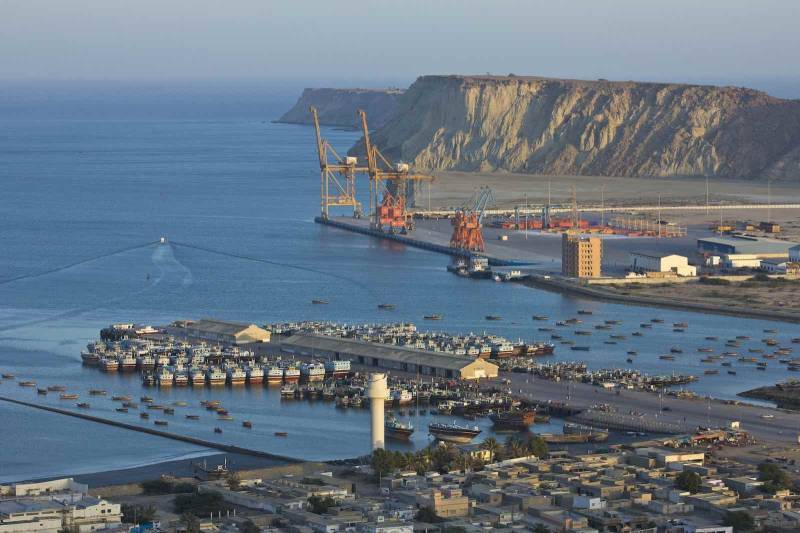China unveils big plans for Gwadar Port bringing billions of dollars for Pakistan
Shares

An official from the China-Pakistan Economic Corridor (CPEC) Authority emphasizes that Pakistan holds a promising prospect for global trade expansion via the Gwadar port, offering substantial savings on sea freight expenses. This opportunity aligns with the global trend where nations are striving to enhance their economic growth by embracing shorter trade routes to reduce costs and save time.
Pakistan stands out by providing significantly lower sea freight rates and granting access to trade routes spanning the Middle East, Africa, and beyond. China's strategic positioning of a special economic zone in Kashgar complements this economic route ideally. With the ongoing completion of the western alignment of the Pakistan Economic Corridor (CPEC), this corridor is poised to become the most cost-effective choice for Central Asian countries seeking international trade avenues.
Historically, Central Asia, owing to its landlocked geography, remained relatively inaccessible to the international community for three decades, limiting its global economic influence. However, this dynamic is shifting as China's prominence on the international stage grows. Gulf states, recognizing China as a significant importer of oil, view Gwadar as an enticing opportunity to export their valuable oil resources to fuel Chinese manufacturing enterprises.
One noteworthy advantage Pakistan holds is its cost-competitive workforce, with labor costs approximately half that of China's. This disparity opens doors for the relocation of China's key industries to Pakistan, potentially enhancing both nations' economic prospects.
Nonetheless, the realization of Pakistan's potential as an international trading hub via Gwadar port hinges on several critical factors. These encompass infrastructure development, political stability, and the capacity to attract and retain foreign investments, according to Liaquat Shah, the Executive Director and Head of Policy Division at the Centre of Excellence for CPEC. Infrastructure investments, particularly in transportation, communications, and energy sectors, must be substantial. Simultaneously, nurturing human capital and addressing logistical challenges are pivotal to ensure the port's accessibility and security for foreign investors and traders.
In conclusion, Gwadar port's transformation into an international trading hub holds immense promise for Pakistan's economic future. However, achieving this vision will demand substantial investments, robust infrastructure development, and strategic policy measures to attract and retain foreign interest. As China's economic ambitions evolve towards high-tech industries, Pakistan stands ready to play a pivotal role in this dynamic landscape, provided it can overcome the associated challenges and secure its position on the global trade map
